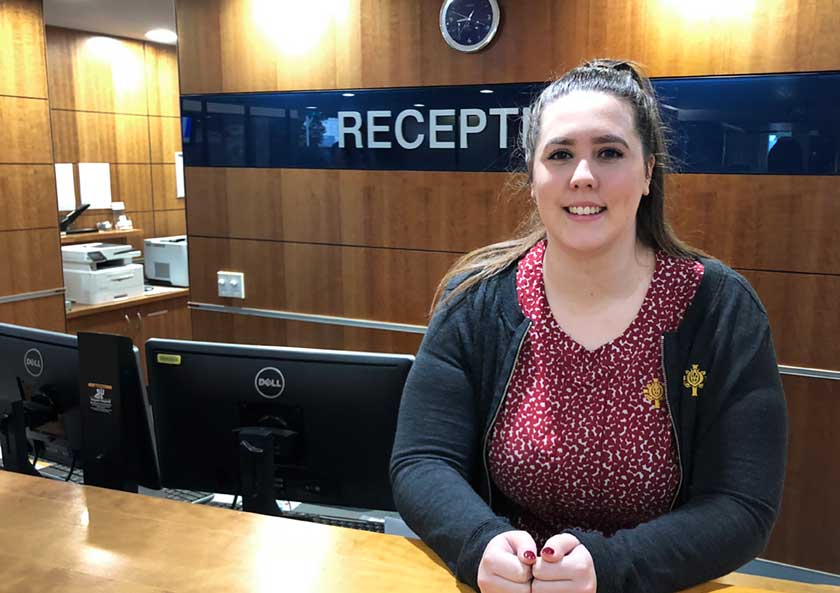National Reconciliation Week - Kelly Reynolds
As a part of National Reconciliation Week some of our Aboriginal and Torres Strait Islander caregivers are sharing their experiences and what reconciliation means to them.
28 May 2020

I’m from Esperance, WA and am an Esperance Nyungar.
I have worked as a telephonist/receptionist for St John of God Subiaco Hospital for the past three and a half years. I love being the very first point of contact for many patients and visitors, and have been able to learn so much about the hospital in this role.
I was fortunate enough to intern with the gynaecology oncology research team at the hospital during the past two years of my biomedical science degree through a Career Trackers Indigenous Internship.
I am now a medical student studying at the University of Notre Dame Australia. Working with St John of God Subiaco Hospital inspired me to pursue medicine and I hope to work as a clinician and researcher at the hospital in the future.
To me, reconciliation means the coming together of Aboriginal and Torres Strait Islander peoples and non-Indigenous Australians and cultures. It is recognising, understanding, respecting and appreciating Aboriginal and Torres Strait Islander cultures and histories, and integrating these in every aspect of society. With reconciliation comes unity, along with equal and equitable rights and greater opportunities.
Reconciliation in health care is especially important; it means creating a culturally secure space with safe and equitable care for Aboriginal and Torres Strait Islander peoples.
I would love to be a leader in the Aboriginal health space, working to improve their health outcomes.
I hope that every space, service, organisation in Australia will become a culturally safe space for Aboriginal and Torres Strait Islander peoples, that our history and culture will be taught, understood
and respected and that we can have strong, united relationships with all of Australia.
You may be interested in...
